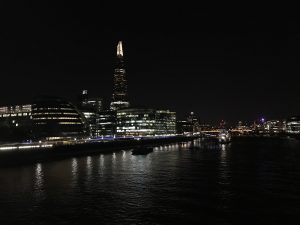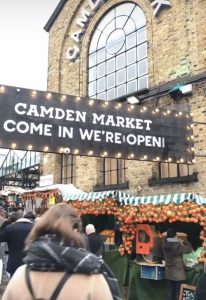
BSc (Hons) Media, Communications and Sociology student, Joon ha Park, gives us a glimpse into what a typical day at City, University of London is like for him.
10am
All of my lectures and tutorials started after 9am this year, this meant that waking up early wasn’t required much and I could sleep in.
Being a Media, Communications and Sociology student (or generally a social sciences student, for that matter) means that you have to be clued up with what is happening around the world. So, the first thing I usually do after waking up is to check my phone for the latest news. I use Twitter, and follow a number of news accounts, political commentators and journalists so that my feed informs me of what is happening in different corners of the world.
I shower and prepare brunch, either an omelette with some toast and tea or a nice little Korean breakfast with a bowl of rice and some soup. I don’t usually have lunch, I like to have a big breakfast or brunch to kick-start the day.
After I finish my meal, I go back to my room and check my email to see if there is any reminders or changes that I should be aware of before classes. Today’s lectures are “News and Society” and “Sociology of Race and Racism”.
I leave my flat at around 11.30am, making my way to the Rhind Building, where most of the media lectures and tutorials are held.
11.50 am
I arrive at the lecture hall and there’s always a few early birds with earphones in, or just reading a novel. I sit at my usual row, and wait for my friends and the lecturer to begin her class. As the clock ticks, more and more students and my friends walk in to the lecture hall (most with a Sainsbury’s meal deal in their hands or a beverage of some sort). After a while, the lecturer comes greeting everyone as she walks in with a smile, and turns on the projector and says,
“Okay guys, good afternoon. Let’s start.”
She starts a lecture on current issues in the news such as ‘Fake News’ and raises questions for us to answer during the tutorials. I’ve acquired a habit of note-taking since secondary school, so I open my Mac to take notes of the lecture, highlighting the interesting bits she says. I also link in some of the news that I read in the morning to some of the theories that she points out.
12.50 pm
Lecture ends and we make our way to the next lecture “Sociology of Race and Racism” which is located all the way in the Drysdale Building.
My lectures and tutorials take place at various different locations on campus. In total, four different buildings. The Drysdale building, the Rhind Building, the University Building and the College Building. So, there is a lot of walking and talking with friends in between going to different lectures and tutorials.
Sociology lectures are great, they really get you thinking about the world around you and this one was no different – the topic under discussion was the growing number of refugees in our world today. It’s always satisfying to sit through a lecture where the academic exudes so much passionate about the topic.
Tutorials are the best time to digest the information from the lectures. Usually my media tutorials are filled with debates and discussions on current world events, where people from all different backgrounds voice their opinions on an issue and the tutorial leader asks us to link it back to the theories. It’s always different. One day you’re debating if journalism is dying and the other you’re discussing the role of gatekeeping in world politics. That’s why it’s so important for a media student to know what is going on in the world.
My sociology tutorials are filled with debates on the readings and the theories rather than world events. Since it’s more of a theory-based course, our discussions in class usually turn into questions that we need clarification from.
I love my course, it’s a mix of the things that I love: media, debates and social relations.
5pm
I’m done for the day and I usually head back to my flat and make some warm dinner and maybe watch a TV show episode while I eat. After eating, I review some of the material that we went over today and do some reading.
More or less, that’s the day in the life of a Media, Communications and Sociology undergrad here at City.
Till next time! – JH









